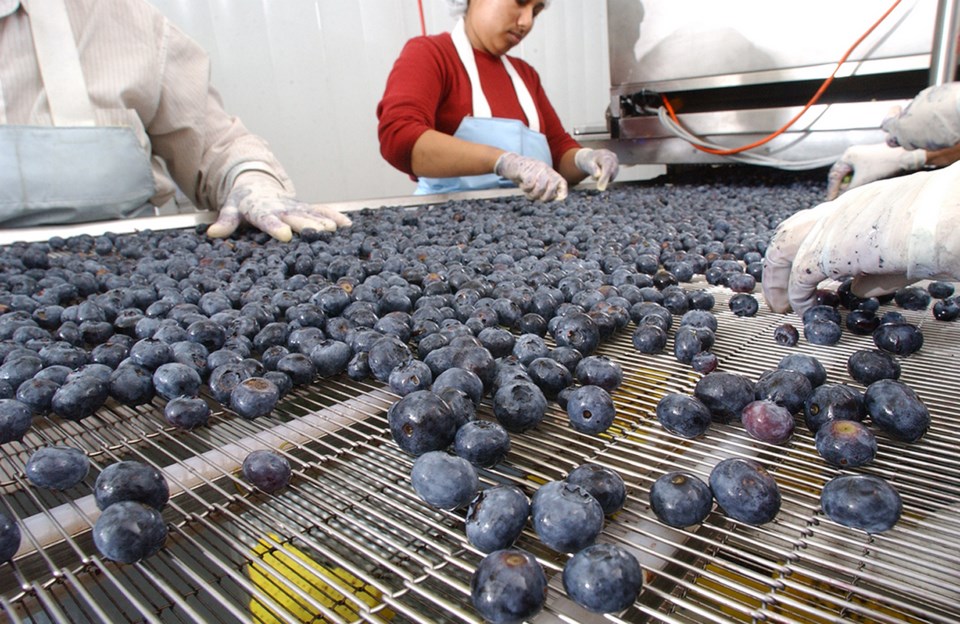A mystery disease might be causing damage to blueberry bushes. But scientists are on the case, with funding from Genome BC to identify and fight this new scourge.
As blueberries account for one-quarter of Richmond’s crop total, a new virus could be a concern for local blueberry farmers.
There are already two well-known viruses that can infect blueberry plants, the shock virus and the scorch virus.
However, when some visibly sick plants were tested, the results came up negative for these already-known viruses.
David Charest, project manager with the not-for-profit organization Genome BC, said now is the time to tackle this new disease, to genetically identify it and find the right “tools” to combat it.
The research being undertaken, funded by Genome BC, is to identify the pathogen causing unhealthy blueberry plants – to figure out whether it’s a new virus or a variant of already-identified ones – so scientists and farmers can have better tools to handle it.
Currently, the research team is doing DNA sequencing on the pathogen.
But part of the work is to also determine how the virus spreads, for example, is it spreading by wind, pollen or insects, Charest said.
Viruses in blueberry plants pose no health threat to humans, but they can impact crop yield.
The concern is if the new pathogen spreads, yields will be lower or some bushes might not even bear fruit, Charest explained.
“The time is right to have new tools to manage this better going forward and reduce the impact on blueberry production in B.C. and abroad,” Charest said.
The lead researcher on the project is Jim Mattsson, associate professor at SFU's Department of Biological Sciences.
Initial lab results have confirmed two strains of a new blueberry virus and a new strain of blueberry shock virus never previously detected in the province.
Not all viruses affect plant health, so it’s too early to tell whether these new strains contribute to crop damage, and further research is required.
Once the cause is found, B.C.-based Phyto Diagnostics, a third-party lab that BC farmers use to test for the shock and scorch viruses, will develop a diagnostic test for the new virus using the genomic information.
According to the BC Blueberry Council, B.C. produces 77 million kilograms of berries annually. In 2019, $273 million in blueberries were exported to 20 markets, making blueberries one of the top agricultural exports in the province.



